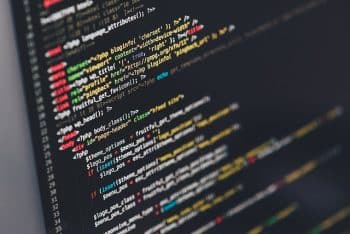Why Siraj Raval’s Plagiarism is the Future of Plagiarism
The futurist plagiarist is the future of plagiarism...

For an outsider such as myself, Siraj Raval is a tough person to understand. Describing himself as an educator, author and speaker, he is likely best known for his YouTube channel, where he has nearly 700,000 subscribers.
There he has made himself a reputation as a technologist who talks a great deal about machine learning, artificial intelligence, blockchain and other hot topics of the time. He has, in turn, parlayed that reputation into a career that includes speaking engagements, training and even an online school.
However, in recent weeks his reputation has taken something of a repeated drumming over the past few weeks.
Last month, his online machine-learning course became the topic of controversy after it was revealed he had allowed more than 1,200 students to register despite promises that enrollment would be capped to just 500. This was discovered after two students that had registered together realized they were given separate Slack invites.
Things got even worse for the course after it was revealed that some of the content featured in the course was copied from other people’s GitHub without attribution in the video, instead choosing to list it in the GitHub readme for his project.
However, things somehow managed to get still worse when it was discovered earlier this week that an academic paper Raval had penned was heavily plagiarized from previous research.
In short, nearly all of the work was copied and pasted directly from work by researchers at MIT, Texas A&M and Xanadu, a Canadian company that specializes in quantum computing. He then submitted the “research” to ViXra, an online platform that doesn’t perform peer reviewing.
Raval, for his part, quickly admitted to the plagiarism
However, the “apology” did little to smooth things over. Many took issue with his use of modifiers such as “claims” and “partly” and his attempt to shuffle the blame onto his work schedule.
The story has also impacted his career at least
But, ultimately, none of this is likely to hurt Raval long term. That’s because, in a twist that’s extremely appropriate, the futurist plagiarist is a great example of the future of plagiarism. It’s a future where plagiarism is common, easy and, for many, of little lasting importance.
The Impact of the Plagiarism

Raval’s case is an interesting one for many reasons. First, Raval bills himself, at least in part, as an educator. Second, the way that this story fits into the larger picture of his actions. Finally, much of the work he does is in areas such as blockchain and machine learning, areas that often don’t have a great deal of public trust
The first issue is the most obvious. Though Raval’s YouTube channel presents himself as something of a pop scientist, he clearly tries to carry himself with academic credibility. Unfortunately for Raval, real research takes real time. Though there’s definitely a place for sites (like this one) that often break down the work of other researchers for public consumption, actual research often takes months or years to complete. It doesn’t fit well with the content cycle of a YouTuber.
However, where most would either abandon the idea of doing original research or simply work on long term projects in the background, Raval took a third option: To try and “write” a paper in a week. In this case, write meant copy and paste most of the work with only a few words and terms changed.
That not only maligns his attempt to present himself as an academic but shows incredible disrespect for the work of actual academics. To think that this was acceptable, even under the pressures of his content schedule, is unthinkable to someone who either works in academia or respects its contributions.
In short, this is not the behavior of an academic, but of someone who wants the credibility that comes with appearing like one.
That brings us to the second point, which is looking at his other action. According to multiple Tweets and article, Raval has a history of using other people’s code in his video and not crediting the work in the video itself or the description. Instead, he would put the information in the readme file of his GitHub.
While this is certainly better than nothing, the percentage of viewers that would delve that deep into his repo is likely very small. Most viewers will simply watch the YouTube video and would be completely unaware Raval didn’t create the code he’s presenting.
Raval has said that he is changing that policy, starting with his most recent videos. That said, the fact he continued the same attribution practice for as long as he did indicates that he wasn’t thinking about how to best cite the work he was building off of. He clearly wanted to follow the law, namely the open-source licenses, but wasn’t thinking about how to best credit the work of others where the majority of his audience would be.
In that light, the most recent plagiarism story is just another step down the path. The gap between “barely citing” and “complete plagiarism” is not very wide for many people. This is something instructors see regularly in their students.
This leaves the third issue, how Raval’s actions impact the industries he works in. Artificial intelligence, machine learning
What happens when tech fields that are struggling for legitimacy and trust when one of their most famous public figures is outed as a plagiarist? Nothing good.
This story just furthers the perception that these industries are filled with charlatans that are quick with buzzwords and spin but light on meaningful insight. This came to light in a major way in Matthew Hughes article for The Next Web, which said:
I’m not sure how to end this piece, except to say that if Chaucer was alive today, he’d have written about the crypto world. From Raval to the infamous BitConnect gang, this sphere is seemingly populated by Canterbury Tales-style cozeners, and I personally can’t wait until it fades into oblivion.
In short, Raval’s actions not only amount to a lie to his audience, but it hurts the actual researchers doing real work in his fields. This includes the researchers he plagiarized.
However, Raval doesn’t seem to care or have thought about that. He has only issued his half-hearted Twitter apology and has said not a word about how his actions have hurt others.
Sadly though, it probably won’t matter. Raval doesn’t represent the history of plagiarism but its future and, because of that, he’s likely to never really feel any harm from this.
The Future of Plagiarism
Currently, plagiarism is easier to perform, easier to detect and easier to call out than ever. Furthermore, with tighter content schedules and a never-ending demand for new content, plagiarism is more tempting than ever.
This has the impact of making plagiarism, or at least the detection of plagiarism, much more common. Stories like Raval are increasingly regular but that increased frequency has made it so that plagiarism seems more trivial, just another scandal in an era of scandal-obsessed media.
This makes plagiarism far more survivable than it once was. We saw this first hand back in 2015 when Benny Johnson, fired from Buzzfeed for over 40 counts of plagiarism, was hired by the Independent Journal Review. There he was suspended for violations of journalism ethics but continued to work for almost six months until he was let go in October 2017 over other issues. He was hired a month later by The Daily Caller and has since moved on to a new job at Turning Point USA.
By all reasonable standards, Johnson’s career should have been over in 2014 after he was fired from Buzzfeed. Instead, he’s enjoyed a long and fruitful career in conservative journalism in spite of his history of ethical violations. This reason is simple: He is a celebrity and his name is more valuable than his scandals are a burden.
Raval is in much the same boat. He is a celebrity first and foremost and, in a world where every celebrity has their scandals and demons, there’s no reason to think he’ll stop being one after this blows over.
Beyond the immediate impacts, this isn’t likely to hurt him. Even his detractors call him “likable.” That, ultimately, will likely save him. He will likely lose in the short term but, at some point, will likely be welcomed back.
Even Jonah Lehrer, whose 2012 fall from grace gobbled up the news cycle for days, found his way back into the public light, releasing a new book in 2016. Why Should Raval be any different?
The truth is that the future of plagiarism is one where, whether it is politics, journalism or research, plagiarism is just another scandal and another blip in the news cycle. It’s an intense fire that burns for a short while, but only ends up singeing the plagiarist’s long-term career. Very few of the truly famous will ever see their career go up in smoke over plagiarism alone.
Ultimately, it’s not that people don’t care, it’s just that they have too much to care about. Plagiarism often gets lost in the shuffle.
Bottom Line
If Raval were smart he’d take a lesson from the Johnsons and Lehrers of the world and go quiet for a bit. Wait until the heat and the scandal die down and he can make a return. While a real apology would probably help, it may not even be necessary.
Raval will, almost certainly, be fine. If he isn’t it will be owed not to the plagiarism alone, but to the combination of all of the scandals brewing around him. One plagiarized paper may be survivable, but a history of weak citation, a heavily-criticized course and a feeling he misled his community may be enough to make him a pariah.
Still, we’ve seen others survive much worse and it’s clear we’re entering an era where the title “plagiarist” doesn’t disqualify you from any position at all. It’s frustrating as many times it appropriate to sever all ties with plagiarists, but it’s the reality we live in.
In the end, it would be good if Raval could at least thoroughly reexamine his approach to citation, in everything he does. Citation isn’t just about formats and standards, it’s a thought process and a way of creating. Clearly, Raval doesn’t have that right now.
If nothing else good comes of this, maybe he can take this as a learning opportunity and grow from it.
Want to Reuse or Republish this Content?
If you want to feature this article in your site, classroom or elsewhere, just let us know! We usually grant permission within 24 hours.
